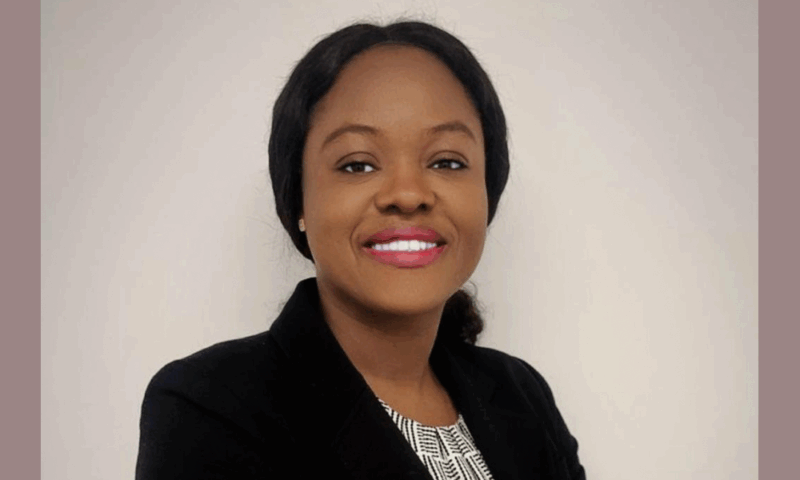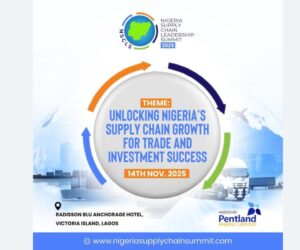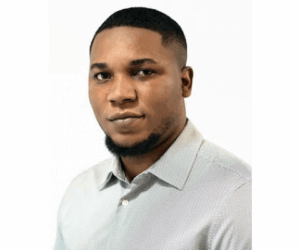With a median age under 20 and a continent-wide push toward regional trade, Africa stands at the threshold of a historic leap. Few leaders are as dedicated to converting that demographic promise into investable reality as Adefemi Fapohunda, a development strategist whose career bridges diplomacy, public policy, and now private capital.
Over more than 15 years professional experience that includes the U.S. Mission in Nigeria, the U.S. Department of State as an educational and work in international development – Fapohunda has distinguished herself as a designer of systemic, investment-ready frameworks. Her work brings together governments, DFIs, global investors, and communities to create innovation ecosystems that generate jobs, attract capital, and strengthen governance.
Now a Visiting Fellow at MIT Sloan School of Management, following an MBA at MIT Sloan and a master’s in public administration from Harvard Kennedy School, she is advancing a portfolio of initiatives with the potential to redefine Africa’s competitiveness:
• Knowledge Zones that align infrastructure, policy, talent, and finance into coherent growth ecosystems.
• Accountability architectures for the African Development Bank’s Special Agro-Industrial Processing Zones (SAPZ).
• Diaspora investment pipelines that transform remittances and expertise into structured capital flows.
“Africa doesn’t need more pilots that end as press releases,” Fapohunda notes. “We need investable systems – clear rules, credible data, and platforms where public policy and private capital work together for citizens.”
From Diplomacy to Systems Design
Fapohunda’s instincts for coalition-building were forged in her years of public diplomacy with the U.S. government as the Director of the American Space Ibadan. Those experiences exposed a challenge: well-intentioned projects faltered when measurement was weak and institutions failed to learn.
That insight now informs her current independent fellowship research with MIT’s Sustainability Initiative (systemic investing track), where she adapts lessons from global innovation districts into scalable African models. In her approach, zones are not real-estate ventures but long-horizon public–private platforms obligated to deliver quantifiable gains in jobs, exports, human capital, and sustainability outcomes.
Bridging Capital and Know-How: Oyjen Capital
To advance this vision, Fapohunda recently founded Oyjen Capital, an advisory and investment platform that connects institutional and mission-aligned investors in the U.S., Europe, and Asia to a wide range of opportunities in Africa—from Knowledge Zones and SAPZ-linked value chains to broader innovation, infrastructure, and enterprise ventures.
Oyjen Capital is designed to curate pipelines, lead diligence, and structure blended-finance vehicles that bring together DFIs, family offices, and diaspora investors. Beyond capital, the firm is designed to orchestrates knowledge transfer linking operators with technical partners, organizing executive immersions with Cambridge-based labs and universities, and deploying zone-tracking architectures that make governance and impact visible in real time.
“Capital moves when risk is understood and results are visible,” she explains. “Our role is to make both possible.”
Making Zones Accountable
A signature of Fapohunda’s work is her on going design of longitudinal measurement systems for agro-industrial and innovation zones. These frameworks track:
• Economic: firm births, exports, FDI flows, logistics costs.
• Social: workforce training, youth and women’s participation.
• Sustainability: energy mix, water efficiency, waste recovery.
• Governance: permit timelines, grievance resolution, audit compliance.
She has also proposed a Diaspora Participation Index to capture investment, mentorship, and technology transfer from Africans abroad.
He describes her architecture as “a shift from ad-hoc reporting to a rigorous decision system that can scale across countries.”
Knowledge Zones: From Concept to Pilots
Fapohunda serves on the Innovation, Science & Technology Advisory Council for Ekiti State, Nigeria, where she contributes to a pioneering Knowledge Zone integrating universities, technical training, venture finance, and industrial partners.
In parallel, she is collaborating with private-sector leaders to actualize the vision of the Ibadan Knowledge Zone, leveraging the city’s heritage as Nigeria’s intellectual capital. Structured around a catalytic fund and a transparent regulatory compact, the Ibadan model reduces investor transaction costs while expanding opportunities for local entrepreneurs.
“Align incentives and data,” she argues, “and capital will follow.”
The Return Voyage: Diaspora, Identity, and Investment
Inspired by Nobel laureate Wole Soyinka’s concept of a “return voyage”, Fapohunda leads initiatives to connect the African diaspora with structured investment vehicles at home. These blend cultural reconnection with standardized co-investment channels, innovation residencies, and mentorship exchanges helping diaspora investors move from sentiment to structured deals.
Why Practitioners Pay Attention
Her ongoing research integrates governance compacts, AfCFTA-aligned export readiness, and blended-finance strategies supported by public dashboards that make progress visible to citizens and investors alike.
This operational focus will require her to convene roundtables with ministers, the AfDB, and private investors, and to advise on policy design across Nigeria and beyond.
Her strength is a systemic lens linking zones, skills systems, digital infrastructure, and trade policy into a single investable proposition.
Education & Recognition
• MBA, MIT Sloan School of Management (Visiting Fellow)
• Master’s in public administration, Harvard Kennedy School
• Leadership roles with the U.S. Mission in Nigeria and educational advisor with the U.S. Department of State
• Appointed member, Ekiti State Innovation, Science & Technology Advisory Council
• Researcher and contributor on systemic investing, governance, and innovation zones
Next Steps
In the coming year, Fapohunda’s fellowship will produce:
• A white paper and policy toolkit for governments and DFIs.
• A zone accountability dashboard template for public visibility.
• An investment pipeline linking private capital to export-ready African firms.
“The measure of success is simple,” she says. “More foreign direct investment, more youth in good jobs, more firms exporting, and citizens who can see, on the record, what’s changing.”
Public diplomacy has been my forte; today, I am evolving that foundation into a profitable and scalable economic venture one where global capital meets local innovation and readiness.
This profile is part of a series spotlighting leaders shaping the future of innovation-led development in Africa.







